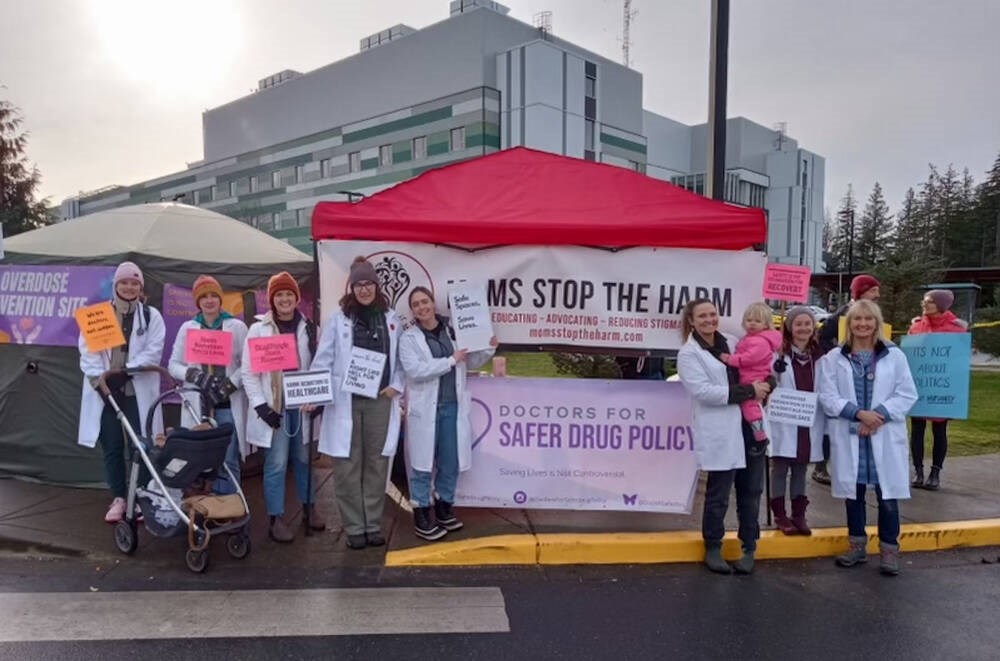B.C. Physicians Urge Province to Establish Overdose Prevention Spaces in Hospitals
As British Columbia continues to grapple with an escalating overdose crisis, a group of physicians is calling on the provincial government to take urgent action. Their primary demand? The creation of dedicated overdose prevention spaces within hospitals to provide immediate care and intervention for individuals struggling with substance use disorders.
With record-high overdose deaths linked to the toxic drug crisis, healthcare professionals argue that integrating overdose prevention services into hospitals could save lives, reduce emergency room strain, and provide a safer environment for those at risk.
—
Why Physicians Are Calling for Hospital-Based Overdose Prevention
The call for hospital-based overdose prevention spaces comes amid worsening drug toxicity levels and rising opioid-related deaths in British Columbia. Physicians advocating for this initiative emphasize that hospitals are already dealing with a high volume of overdose cases, often treating the same patients multiple times.
Key Reasons for This Proposal:
1. Immediate Medical Intervention
Hospitals are equipped with life-saving tools such as naloxone, oxygen therapy, and intensive care services. Having designated overdose prevention spaces within hospitals could allow for rapid medical response, significantly reducing fatalities.
2. Reducing ER Overcrowding
Overdose-related emergencies place immense pressure on hospital emergency departments. A dedicated space for overdose prevention could streamline care, ensuring timely treatment while freeing up ER resources for other critical patients.
3. Enhancing Patient Support and Harm Reduction
Physicians argue that integrating overdose prevention spaces into hospitals could serve as a gateway to long-term care, including mental health support, addiction treatment, and social services. This approach aligns with harm reduction strategies proven to be effective in preventing overdose deaths.
4. Addressing Stigma and Barriers to Care
Many individuals struggling with substance use avoid seeking medical help due to stigma. By providing safe spaces within hospitals, healthcare professionals hope to encourage more people to access necessary treatment and support without fear of judgment.
—
The Overdose Crisis in British Columbia: A Growing Public Health Emergency
British Columbia has been at the epicenter of Canada’s overdose crisis, with illicit drug toxicity leading to record-breaking fatalities. According to recent reports, thousands of people have lost their lives to opioid-related overdoses in the province, with fentanyl and other synthetic drugs exacerbating the crisis.
Key Statistics on B.C.’s Overdose Crisis:
Over 2,000 overdose deaths were recorded in B.C. in 2023 alone.
Fentanyl was detected in approximately 80% of overdose cases.
The province declared a public health emergency due to opioid-related deaths in 2016, but the crisis has only worsened.
Despite harm reduction efforts, such as supervised consumption sites and drug-checking services, the demand for expanded healthcare-based overdose prevention continues to grow.
—
What Overdose Prevention Spaces in Hospitals Could Look Like
Physicians envision overdose prevention spaces within hospitals as medically supervised areas where individuals can use substances in a controlled setting. These spaces would be staffed by trained healthcare professionals equipped to handle overdoses, provide addiction resources, and connect patients to longer-term care.
Potential Features of Hospital-Based Overdose Prevention Spaces:
Supervised Consumption Areas: Similar to existing safe consumption sites, but within a hospital setting.
On-Site Naloxone and Emergency Medical Response: Immediate intervention for overdoses.
Access to Addiction Treatment Services: Referral pathways to detox programs, opioid agonist therapy (OAT), and counseling.
Support for Long-Term Recovery: Social workers, peer support programs, and mental health resources.
—
Government Response and Next Steps
While B.C. has been a leader in harm reduction initiatives, including decriminalizing small amounts of illicit drugs for personal use, physicians believe more must be done. Advocates are urging the provincial government to take immediate action by integrating overdose prevention spaces into hospitals, particularly in high-risk areas.
Health officials have yet to confirm whether such a plan will be implemented, but discussions around expanding hospital-based harm reduction services are ongoing.
As the overdose crisis continues to claim lives across British Columbia, healthcare professionals are advocating for a bold yet necessary step—creating overdose prevention spaces within hospitals. By providing immediate medical intervention, reducing ER congestion, and offering long-term addiction support, these spaces could become a vital component in the fight against the toxic drug crisis.
With increasing pressure on policymakers, the question remains: Will the B.C. government act swiftly to implement hospital-based overdose prevention, or will the province continue to witness preventable deaths?
Source : Swifteradio.com


